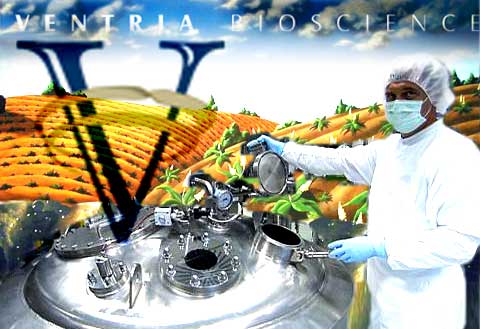What is Bio-pharming?
For a couple years now scientists have been making an experiment of biotechnology where they use genetic engineering (GE) in plants for medical needs, like protein and chemicals. Pharmaceuticals can be made in plants at a significantly reduced cost compared to current production methods. Major concerns with bio-pharming is that food or feed crops and get contaminated with pharmiceutical products, and that the products might have a negative effect on natural ecosystems. Bio-pharm crops are regulated by two federal agencies (USDA and FDA) and by state departments of agriculture (Biopharming).
Major Challenges
Phil Webster said that the biggest challenge in bio-pharming is a negative public awareness towards GM crops, owing mostly to safety concerns relevant to human health and to the environment. There is awareness that food safety may be compromised and that GE crops may have an unpleasant effect on human health. From an environmental point of view, concerns over non-target impacts of GE crops as well as gene transgression to other plants and unconnected species may have unwanted impact. Thus far, no scientific evidence has been published indicating that currently commercialized GE crops have a negative effect, but further scientific investigation is required for each individual case.
He also said that a second major challenge is from a narrow point of view. In this new and rising area, no international guidelines are currently available. GE crops have been strongly different by some countries, with an illegal suspension in Europe. However, this perception is expected to change, as exhibited by the recent decision of Spain and Germany to resume small-scale GM field trials and production (Webster).
Future accomplishments
Bio-pharming is possibly a big business. The Canadian Food Inspection Agency (CFIA), said in a recent report that the
That is a big demand for the future and will put a significant damage on existing microbial and mammalian cell bio-reactor systems. Concerns have come up that making power might not meet the demands, and that production costs for mass production are too expensive. Growing plants as a medium to produce PMPs and PMBs has the likely to offer a solution to this problem.
Bio-pharming can be get big by simply growing larger areas of crops relative to demand. That means that mass production of high value-added helpful proteins can be done at really low cost.
Products that are produced in plants can be stored for a long period of time without needing to be refrigerated if they are articulated in seeds or leaves that can be stored dried. In addition, bio-pharming has the potential to offer high levels of safety due to a low contamination risk from animal viruses and proteins. So, medical proteins, industrial enzymes, and even cosmetic and functional food items can be produced safely and economically under a controlled environment (Webster).
